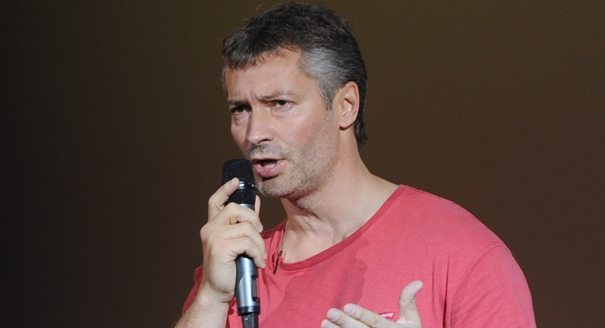Let us talk about Yevgeny Roizman, the opposition politician who became the mayor of Yekaterinburg. This modern day Renaissance man differs from his more famous opposition counterpart, Alexey Navalny, because of his established track record of civil engagement, his previous Duma deputy position, his affiliation with Mikhail Prokhorov’s Civic Platform Party, his staunch regional loyalty, and, well, let us call it his “multi-dimensional” past.
Roizman is probably most famous for his City Without Drugs Foundation which addressed Yekaterinburg’s drug problem by carrying out raids against drug dealers and holding drug users in virtual captivity forcing them to undergo a detox. While Roizman claims that this method helped over 5,500 people, critics are quick to point out that his enforced captivity technique is illegal and had racial overtones—all of which Roizman denies.
He was a Duma deputy between 2003 and 2007 and a member of the A Just Russia party in 2006-2007. Inter-party squabbles resulted in him leaving both the party and politics for a period of time.
Roizman’s affiliation with the Civic Platform Party, could, understandably, garner mixed reactions. The party’s mandate is forward thinking; it calls for consolidating civil society, building democracy, and carrying out health care and education reform. However, as well intentioned as this all sounds, skeptics are quick to point out that the last party Prokhorov led, the Right Cause, was later found to be a Kremlin-puppet. Some have interpreted Prokhorov’s conspicuous absence from the September 8 ballot to mean that he has lost interest in politics and that the party is unlikely to survive. Roizman beat his skeptics to the punch on this one. Although running on the Prokhorov platform, he alleges to not have accepted any financial aid from the tycoon. Thus ensuring his future independently from the fate of the party.
The new mayor has been particularly lauded for his loyalty to his region. Constituents are proud that he stuck with the Urals and did not abandon them for Moscow.
Despite the positive elements that Roizman is bringing to the table, his campaign was not scandal-less. Ilya Zakharov, head of the Yekaterinburg City Elections Commission, reported that there had been accusations of vote bribing, ballot fraud, and coercion. While these are not little concerns, one could argue that they are more or less part and parcel for a Russian election.
Roizman has been the mayor for only a few days and already is making progress. The Moscow Times reports that he is critical of Yekaterinburg’s bid to host the 2020 World Expo and four matches of the 2018 World Cup dismissing them as a populist measure with high corruption potential.
Roizman seems to be a politically savvy realist. And, not to sound naively optimistic, if he continues applying this mindset to his mayor position, he may shape up to be a formidable leader of the opposition.
Julie Leighton is an independent Russian researcher. She was a research assistant at Russia and Eurasia Program at the Carnegie Endowment for International Peace.
